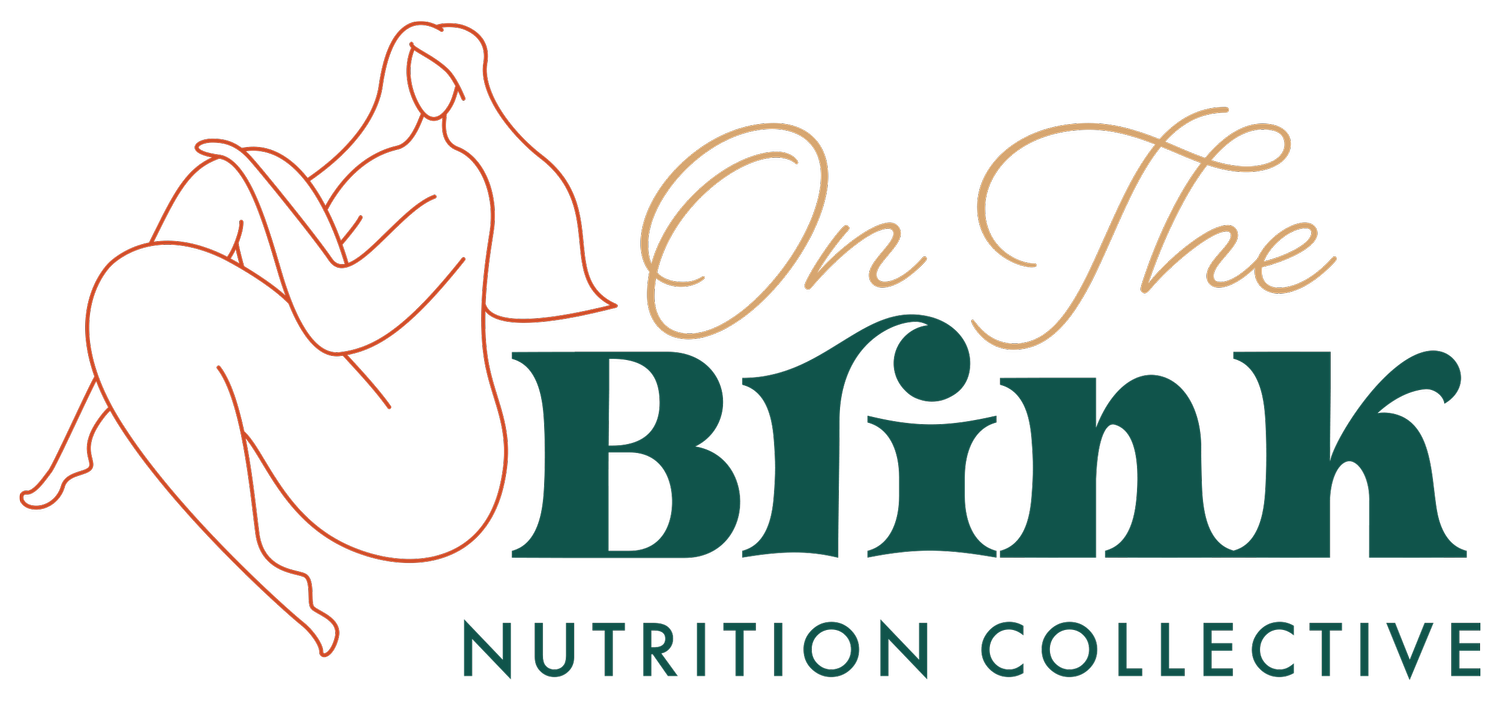A Way Forward Beyond Willpower
“I have no willpower.”
This is a common phrase spoken in nutrition therapy sessions, lamented across the dining room tables, and even confessed at the bakery counter at the grocery store.
What is willpower and why is it so elusive?
Willpower is...
the ability to delay gratification.
resisting short-term temptations in order to meet long-term goals.
the ability to notice and sidestep unwanted thoughts, feelings, or impulses.
We have many common names for willpower: determination, self-discipline, and self-control.
Willpower comes from a place of conscious thought in your brain. Your will allows you to focus on a task at hand. Willpower allows you to confront hard things. It helps you show up to a nutrition or therapy session (even when you dread it), follow a weekly meal plan to stay within a grocery budget, turn off the TV at 9pm to get to bed on time.
Willpower helps you make choices based on your value system.
One thing about willpower that is rarely discussed is that, like any resource, it can be depleted.
Here are a couple of things that may keep your willpower beyond your reach:
Tasks requiring a high amount of focus and planning (such a as rigorous, restrictive eating plans)
Low energy intake (willpower comes from the brain, if the brain is underfed it cannot function properly)
Feeling the need to show self-restraint to please others (being driven by external expectations instead of internal motivations).
Willpower is real. But it’s not the only real thing.
Willpower is not the only factor that impacts your ability to make meaningful and sustainable choices. I want to be clear that having a strong will is impactful but it DOES NOT give you the ability to push through, master, and overcome all difficulties. That’s the myth of willpower.
Here is what I know to be true: Willpower comes from a place of conscious thought in your brain. The field of neuroscience agrees that the majority of the brain and nervous system activity is unconscious. This means that a part of your mind and body cannot be directly controlled by willpower; from internal biological systems (a medical condition such as high blood pressure) to the physical and emotional impact of external power structures (fatphobia, beauty standards, a culture built on materialism and greed).
Assuming your conscious self can somehow override our unconscious self and external forces is careless at best and dangerous at worst.
Relying solely on the “mind over matter” approach asks you to assume your singular will has the power to override all the obstacles you face. This mindset pits you against yourself - an inner opposition takes place. And when you approach something as a fight, there is a winner and a loser. If you are going against yourself, you ultimately walk away with a sense of defeat.
If you are having a difficult time making a behavior change around food, I want you to know that it’s not just a willpower thing.
Depending on willpower to heal your relationship with food is an individual approach to an issue that could also include and benefit from connection and support.
Another way to a new relationship with food and body is through connection.
The opposite of willpower is connection - to your whole self, a caring person or community, and a loving force at work in this world.
Reach out if you need support. I’d be happy to connect with you.
